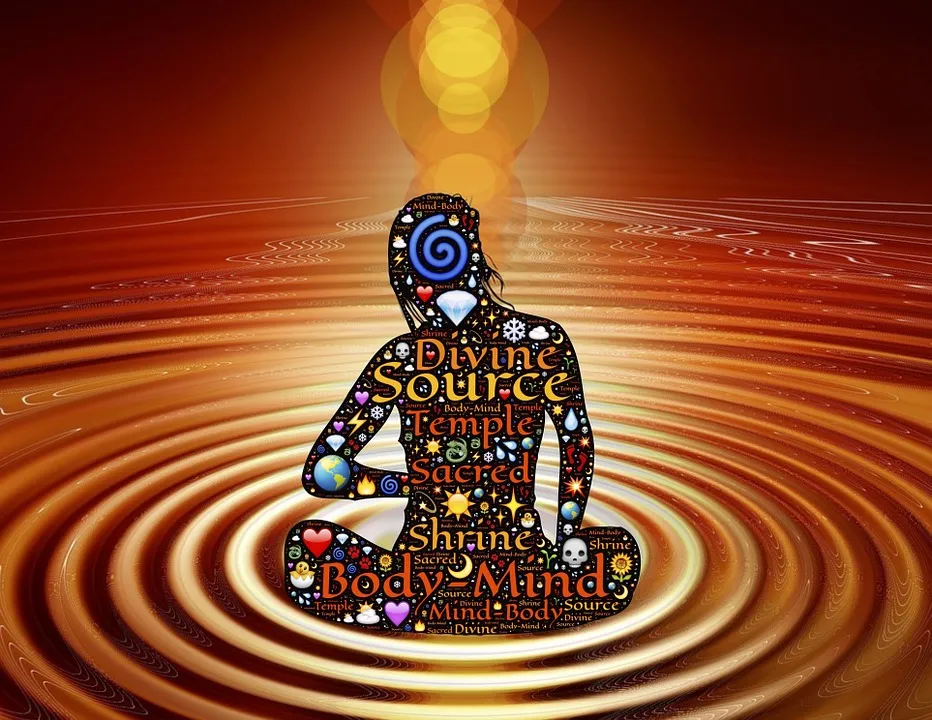The concept of justice and righteousness is central to Christian beliefs and the understanding of God’s character. But what does it mean that God is just? In this blog post, we will explore the relationship between justice and righteousness in biblical literature, delve into the attributes and characteristics of God, examine the problem of evil and human morality, and discuss the intersection of justice, mercy, and grace. Join us to learn more about God’s just nature.
The Concept of Justice and Righteousness in Biblical Literature

When people say that “God is just,” they are referring to a foundational concept in Christianity that comes from Biblical literature. The Bible talks extensively about justice and righteousness, and it is important for Christians to understand these concepts in order to have a deeper appreciation and understanding of God’s character.
Here are some key aspects to keep in mind when exploring the concept of justice and righteousness in the Bible:
- Justice and righteousness are closely linked.
- In the Bible, we see justice and righteousness used together frequently. They are often used to describe God’s character (Psalm 89:14, Psalm 33:5), and are also used to describe how humans should behave (Proverbs 21:3, Micah 6:8).
- Justice can be thought of as the practical application of righteousness. In other words, righteousness is the standard, and justice is the way that standard is carried out in society.
- Biblical justice is about fairness and restoring balance.
- Biblical justice is not about arbitrary punishment or revenge. Instead, it is about restoring balance to a situation where something has gone wrong. For example, if someone is wronged, justice requires that the wrong be made right. This could involve punishment for the wrongdoer, but it could also involve restitution or making things right between the parties involved.
- Biblical justice is often concerned with the vulnerable and marginalized members of society. The Bible frequently speaks of God’s concern for the poor, widows, orphans, and foreigners (Deuteronomy 10:17-19, Isaiah 1:17). Injustice that harms the vulnerable is particularly abhorrent to God.
- God’s justice is inseparable from his love and mercy.
- While justice is a key aspect of God’s character, it is always intertwined with other attributes like love and mercy. In fact, justice without love and mercy can become cruel and oppressive.
- God’s love and mercy are shown most fully in the person of Jesus Christ, who fully embodied God’s justice and righteousness.

By understanding justice and righteousness in the context of Biblical literature, Christians can more fully appreciate God’s character and God’s work in the world.
The Attributes and Characteristics of God
As Christians, we believe that God is just, righteous, fair, and merciful. These characteristics define who He is and how He interacts with the world. In the Bible, we see that God’s justice and righteousness are inseparable from His nature. He is described as the ultimate judge who executes perfect justice in all situations.
God’s justice and fairness are based on His moral law, which is the standard by which He judges all human behavior. This moral law is rooted in God’s character and His desire for His creation to live in harmony with His divine purpose. The Bible tells us that God’s laws are perfect and reflect His holy nature.
However, it’s important to note that God’s justice and righteousness are not solely punitive. God is also merciful and forgiving. In fact, justice and mercy intersect in the Christian faith, as we believe that God’s mercy is demonstrated through His forgiveness of sin.
Moreover, God’s justice is not limited to punishment for wrongdoing. It’s also reflected in His desire for human flourishing. When humans act justly and righteously, they reflect God’s character and contribute to the good of the world. This is why the Bible encourages us to pursue righteousness and justice in our own lives and in society at large.
It’s worth mentioning that while God’s justice and righteousness are central to His character, they are often misunderstood. Many people believe that God is a harsh judge who takes pleasure in punishing sinners. However, this is a misrepresentation of God’s nature and character. God’s justice is always tempered by mercy and love. His desire is always to restore broken humanity to a right relationship with Him.
In summary, God’s justice and righteousness are central to His character as depicted in the Bible. They are inseparable from His nature and reflect His desire for human flourishing. While these attributes are often misunderstood, we can see that they are always tempered by God’s mercy and love. Ultimately, God’s justice and righteousness lead to the redemption and salvation of humanity.
God’s Justice and the Problem of Evil
As a Christian, it’s common to struggle with the question of why a just God would allow evil to exist in our world. It’s a difficult issue to grapple with, but it’s something that we must try to understand to truly appreciate the nature of God’s justice.
Here are some key points to consider:
- God is holy and righteous, and His ways are higher than our ways. As humans, we don’t always understand why things happen the way they do, but we can trust that God has a purpose for everything.
- Sin entered the world through the disobedience of Adam and Eve, and as a result, we live in a fallen world. The Bible tells us that the whole creation groans under the weight of sin and suffering (Romans 8:22).
- God doesn’t cause evil, but He allows it to exist as a consequence of our sin. He allows us to make choices, even if they’re wrong, because He wants us to have free will. Without that freedom, we wouldn’t be able to truly love Him or each other.
- God can use evil for good. Joseph, for example, was sold into slavery by his brothers and suffered greatly, but God used his experiences to save his family and many others from famine (Genesis 50:20).
- We may not always understand why things happen, but we can trust that God is ultimately in control and that He will bring justice in His time. In the meantime, we can seek to bring healing and comfort to those who are suffering.

It’s important to remember that God’s justice is not the same as human justice. God’s judgments are perfect and always righteous, whereas human judgments can be flawed and biased. As Christians, we’re called to seek justice and work towards a more just world, but we must also trust that God’s justice will ultimately prevail.
Here are some practical ways to apply these concepts in our lives:
- Pray for those who are suffering and grieving. Ask God to show them His love and comfort.
- Look for ways to serve those who are hurting. Whether it’s volunteering at a shelter or simply listening to a friend who is going through a tough time, we can all make a difference.
- Study the Bible and learn more about God’s character. The more we know about Him, the more we can trust Him.
- Trust in God’s promises. Know that He is faithful and that He will bring justice in His time.
Remember, God is just and righteous. We may not always understand His ways, but we can trust that He is always working for our good.
The Role of Human Morality and Ethics in Understanding God’s Justice
As humans, we have developed our own sense of morality and ethics over time. We understand what is right and wrong based on our life experiences and cultural upbringing. However, when it comes to understanding God’s justice and righteousness, it can be challenging to reconcile our own views with the biblical concept of justice.
The Bible teaches us that God is just and righteous. This means that He always acts in a manner that is fair and morally right. As humans, we often think of justice in terms of punishment for wrongdoing. However, God’s justice is not just about punishment, but also about restoration and redemption.
In order to understand God’s justice, we must first understand the nature of sin. Sin is what separates us from God and what causes us to be in need of His grace and mercy. God’s justice is rooted in His perfect moral character and His desire for all people to live according to His moral law. When we violate that law, there are consequences. However, God’s justice also provides a way for us to be redeemed and reconciled to Him through the sacrifice of Jesus on the cross.
« Renewing Your Mind: How to Develop a Christ-like Perspective.
Understanding the Parable of the Sower in Biblical Teachings »
Our own moral and ethical views can shape and influence how we view God’s justice. For example, some may struggle with the concept of God’s justice because they view it as harsh or unmerciful. However, when we understand that God’s justice is not just about punishment but also about restoration, we can see His mercy and grace in action.
Ultimately, understanding God’s justice requires us to surrender our own perspectives and view justice and righteousness through the lens of His perfect character. As we grow in our understanding of God’s justice, we can see how it is not just a characteristic of God, but also an invitation to live in alignment with His will and purposes.
In conclusion, our own morality and ethics can play a role in how we understand God’s justice and righteousness. When we view justice through the lens of God’s perfect character and His desire for restoration and redemption, we can see how justice is a key component of His love and mercy towards all people.
The Intersection of Justice, Mercy, and Grace in Christian Beliefs

As Christians, we believe that God is a just God who punishes sin and rewards righteousness. However, we also believe that God is a merciful and gracious God who forgives sin and offers redemption to those who repent. The intersection of justice, mercy, and grace is a central tenet of our faith, and it’s essential to understand how these concepts relate to each other.
-
Justice – Justice is the foundation of God’s character and the moral law that governs the universe. God’s justice is perfect and fair, and He will hold every person accountable for their actions. In the Bible, we read about God’s judgment and punishment upon the wicked, as well as His rewards for the righteous.
-
Mercy – Mercy is the compassion and kindness that God shows to those who don’t deserve it. It’s the opposite of justice because it’s not based on merit. In the Bible, we see countless examples of God’s mercy, such as when He forgave the Israelites for their disobedience or when Jesus forgave the woman caught in adultery.
-
Grace – Grace is the unmerited favor that God bestows upon us. It’s the gift of salvation that we receive by faith, not by works. Grace is the crux of the Gospel message because it’s what makes our salvation possible. Ephesians 2:8-9 says, “For by grace you have been saved through faith. And this is not your own doing; it is the gift of God, not a result of works, so that no one may boast.
-
The Intersection – The intersection of justice, mercy, and grace is where we see the righteousness of God. God’s justice demands that sin be punished, but His mercy and grace offer a way out. Through the sacrifice of Jesus Christ, God’s justice was satisfied, and His mercy and grace were poured out on us. Romans 3:23-24 says, “For all have sinned and fall short of the glory of God, and are justified by his grace as a gift, through the redemption that is in Christ Jesus.”
As Christians, we are called to live justly, show mercy, and extend grace to others. We are also called to trust in the justice, mercy, and grace of God. When we understand the intersection of these concepts, we can fully grasp the depth of God’s love for us and the beauty of our salvation.
Biblical Justice and the Concept of Salvation
As we explore the concept of divine justice and righteousness in the context of Christianity, it is important to understand how the Bible presents the idea of justice. One key aspect of this idea is the relationship between justice and salvation.
The Bible teaches that God is a just God who punishes sin and rewards righteousness. This means that justice and righteousness are foundational principles of God’s character. However, it also teaches that God is loving and merciful, and desires for all people to be saved from the consequences of sin.
This leads us to the concept of salvation. According to Christian theology, salvation is the process by which individuals are rescued from sin and its consequences and brought into a right relationship with God. This process is made possible through the death and resurrection of Jesus Christ, who paid the penalty for sin and made forgiveness and reconciliation with God possible.

But what does salvation have to do with justice? The answer lies in the fact that salvation is ultimately an act of divine justice. Through salvation, God demonstrates his justice by punishing sin while also extending mercy and grace to those who believe in Jesus.
As the Bible says in Romans 3:23-26, “All have sinned and fall short of the glory of God, and all are justified freely by his grace through the redemption that came by Christ Jesus. God presented Christ as a sacrifice of atonement, through the shedding of his blood–to be received by faith. He did this to demonstrate his righteousness, because in his forbearance he had left the sins committed beforehand unpunished–he did it to demonstrate his righteousness at the present time, so as to be just and the one who justifies those who have faith in Jesus.”
In other words, through salvation, God demonstrates his justice by punishing sin (in this case, through the sacrifice of Jesus) while at the same time extending grace and forgiveness to those who believe in Jesus. This is why the Bible often describes salvation as a “gift” (Ephesians 2:8-9) rather than something we can earn through our own efforts.
As Christians, we are called to live in light of this understanding of justice and salvation. We are called to pursue righteousness and justice in our own lives (Micah 6:8) while also extending grace and mercy to others. We are called to proclaim the good news of salvation to the world, so that all people may have the opportunity to be rescued from sin and brought into a right relationship with God.
In conclusion, the concept of salvation is closely connected to the idea of divine justice in Christianity. Through salvation, God demonstrates his justice by punishing sin while at the same time extending grace and forgiveness to those who believe in Jesus. As Christians, we are called to live in light of this understanding of justice and salvation, pursuing righteousness and justice while also extending grace and mercy to others.












